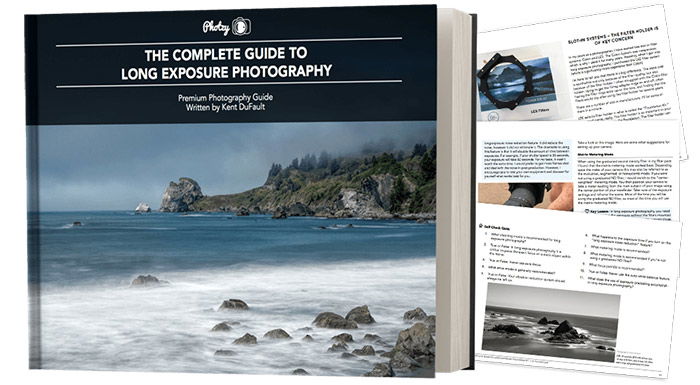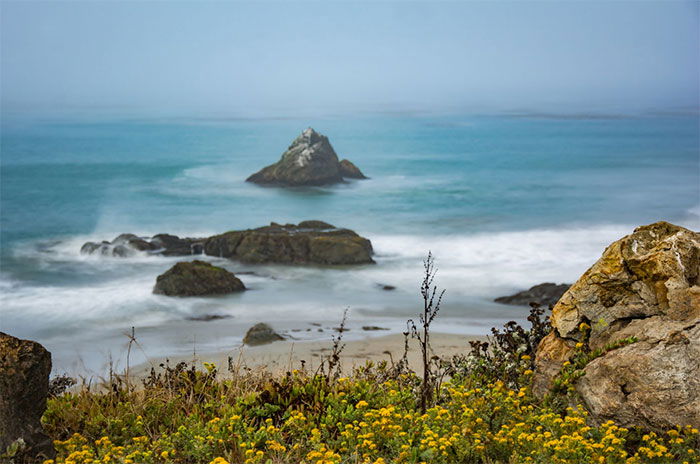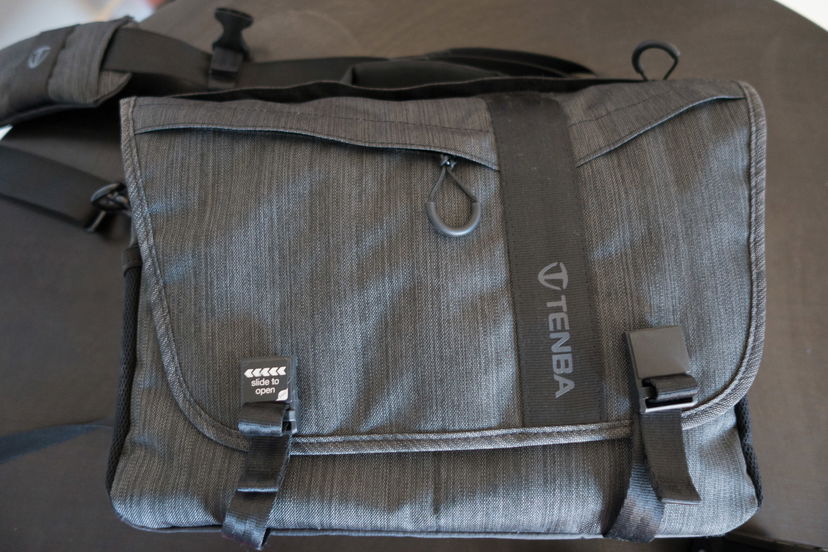Photzy Review: Complete Guide to Long Exposure Photography
Long exposures can produce wonderful results. But they can also be a disaster. Photzy wants to help you be more successful with your experiments in this field with their Complete Guide to Long Exposure Photography e-book.
So the question is, how complete is the guide and is it worth your money? Well, in this review, we'll look at this e-book from Photzy and consider its strengths and weaknesses. Finally, we'll let you know if we think it's worth buying. So read on to find out!
What to Expect from the Photzy eBook
The ‘Long Exposure eBook’ is made up of five main chapters, which are the following:
- Equipment
- Setting Up The Shot: Technique
- Subject Selection and Framing
- Long Exposure Photography and Composition
- Final Notes, Suggestions, and Techniques
Take a look at its contents in detail here:
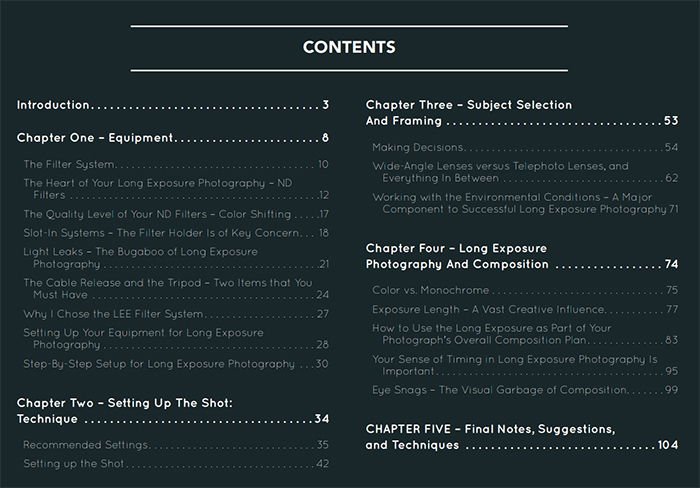
It’s not a particularly long ebook, consisting of roughly 100 pages and 20000 words. It comes in the form of a PDF file, which you can open on practically any device. Keep in mind that it’s not dynamically scalable, so I don’t advise viewing it on a smartphone. A tablet or computer is best.
As for its contents, the author declares at the very beginning that this ebook only covers daytime long exposure photography. However, there’s no mention of this on the sales website or else. I was surprised, as the full title says ‘Complete Guide’. This can’t be true if the book misses out on nighttime or other long exposures.
The actual content is pretty well organised. A large part of the book is occupied by technical advice. Its other core element is how composition rules change when shooting long exposures.
At the end of each chapter, you’ll find self-check quizzes, reflecting on the key content of the respective chapter.
There are also parts marked as ‘Key Lessons’. These are what the author considers to be the most important takeaways.
You can get this guide for $17 at the time of writing. It’s a discounted price from $40.
Who Is the Author?
The author of the ‘Long Exposure eBook’ is Kent DuFault, a photographer from Minnesota, US. He is Director of Content at Photzy and most of their products are written by him.
I have previously reviewed one of his works, ‘Advanced Composition’. His style is entertaining but too wordy (at least for my taste).
What Is the Sales Page Like?
When we’re talking about expectations for ‘Long Exposure eBook’, I have to mention the sales website. I find it a bit misleading. And here’s why.
At the very top of the page, there is a photo, which is a stock image. And it’s not featured in the book. In my opinion, a photography firm should market their product with their own image.
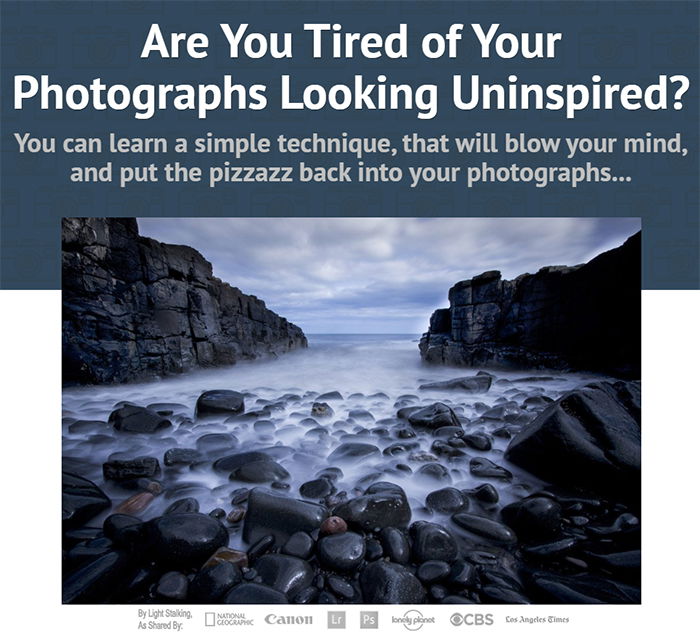
Scrolling down, the next image we encounter is a beautiful shot of a sunset on a rocky shore. The page says “You can do this… and it’s not as hard as you might believe”.
Sadly, this image is also not the author’s own. And, just like the previous one, you can’t find it in the ebook itself.
Consequently, the ebook doesn’t teach you how to recreate it. This photo uses several techniques (such as focus stacking, potentially light painting, HDR, and sky replacement) that you won’t find in the ‘Long Exposure eBook’.

As we continue reading, there is a story of how the author dazzled a friend of his by a long exposure photo. Clearly, the text indicates that this photo is his original creation.
Unfortunately, my research proves the contrary. I went through the author’s publically available portfolios and I couldn’t find it. However, a quick image search on Google revealed the original.
Despite the (made-up?) story, this photo doesn’t belong to the author. Instead, it’s a stock image by Dave Hostad, a photographer from the UK.
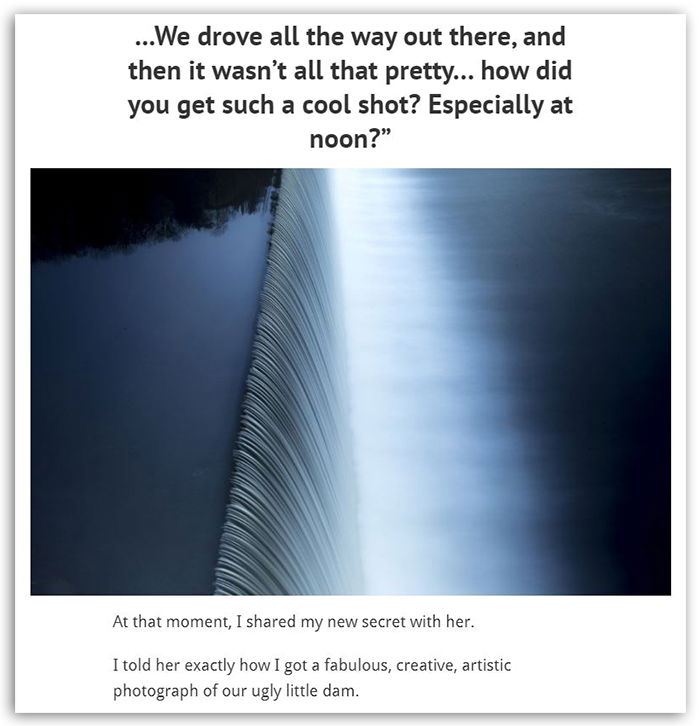
What I Liked
Composition Parts
Kent is great in showing different perspectives and options for composing an image. This has already become clear in his other ebook ‘Advanced Composition’.
His skill for composition is prevalent here, too. The ‘Long Exposure eBook’ teaches you the key skills to analyse a composition, both on the spot and in post-processing.
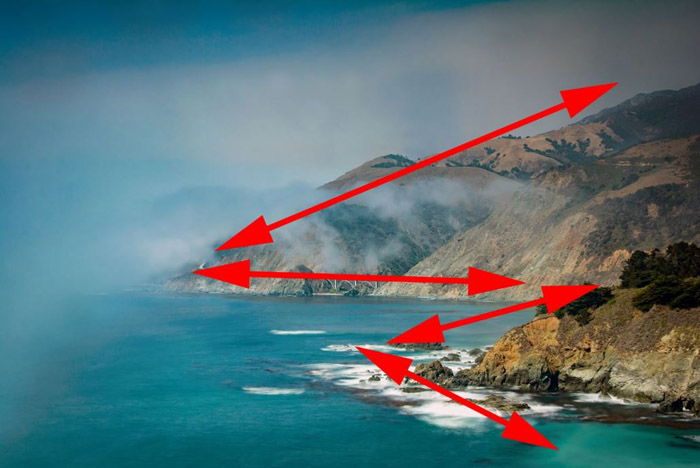
Setting Up The Shot
I find the sections detailing the preparation and setup steps for long exposure photography quite informative.
They show you precisely what you should do and how. Apart from minor issues, they form a strong part of the ebook. Although they don’t make you a better photographer instantly, they’re practical advice.
Kent is cautious and precise about the problems you might encounter before and during your shoot.
Areas To Improve
Now let’s see in what aspect the ‘Long Exposure eBook’ missed the point.
The Graphics
A key problem which I’ve already mentioned in my review of ‘Advanced Composition’ is the sketchiness of the graphics. In my opinion, they look quite confusing and lack professional design.
This issue is even more prevalent in the ‘Long Exposure eBook’, with the addition of text elements on images.
With a bit of time (and maybe the help of a visual designer), they could have been redesigned. This would have enhanced the overall feel of the ebook.
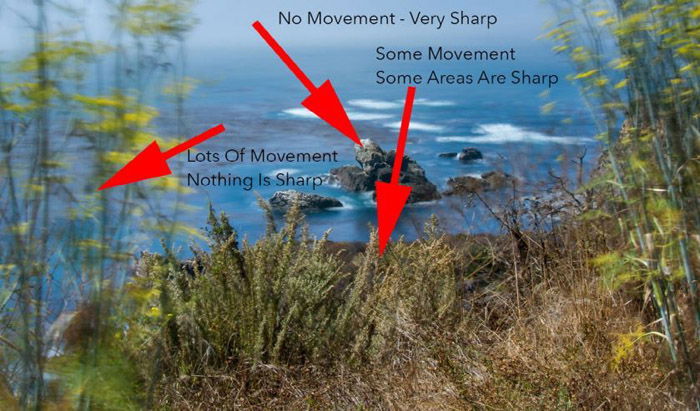
A representative example of the graphics featured in the book
The Photographs
In ‘Advanced Composition’, I’ve noticed that most of the photos displayed are stock photos. This, however, is not the case in the ‘Long Exposure eBook’. Here, I couldn’t find a single one of them, only on the sales page.
But this creates a problem on its own: a lot of the images look amateurish, and are not illustrative. This is certainly not a judgement on Kent’s entire portfolio – his work in many other fields is respectable and professional.
I believe that more effort should have gone into creating the imagery for this product. Not only is it not inspiring, but it also doesn’t match the standards many creators on the internet offer for free.
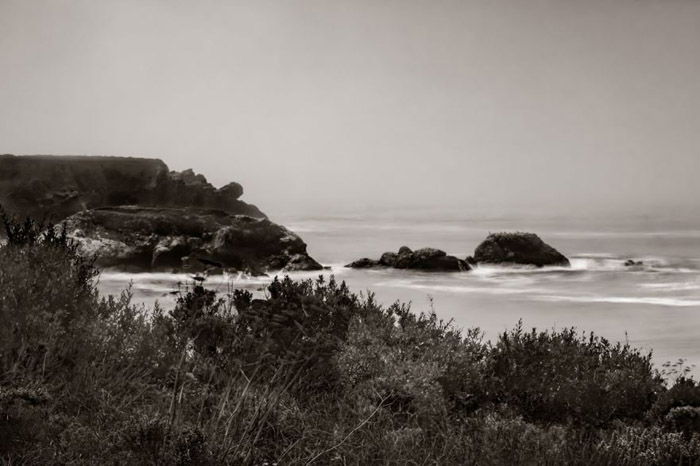
Style, Formatting, and Writing
Although the ebook is about 20000 words long, it could be easily shortened by leaving out parts that don’t add information or value. Some of them do add to the entertainment factor – but some don’t.
For instance, there are sections that closely resemble the tone of the sales page, trying to convince me that my purchase was worthwhile.
There are pages that could be better expressed in a fewer number of sentences, such as the one below.
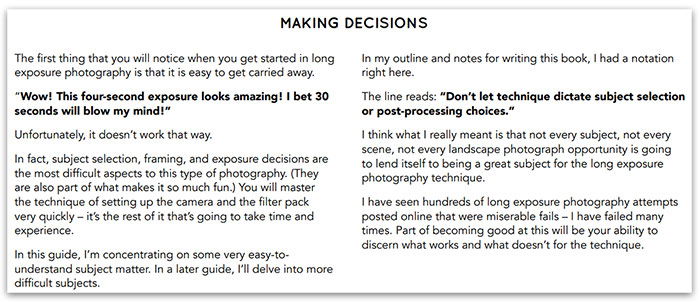
A page towards the middle of the ebook
Key Lessons and Quizzes
Although most of them are informative, some of the ‘Key Lessons’ seem to be rushed. Take a look at the one below. It’s split between two pages, and it’s almost longer than the actual chapter.
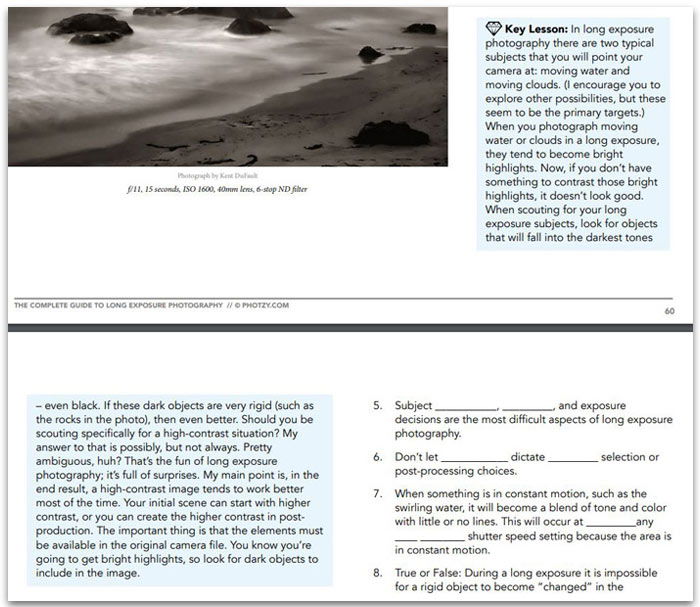
Some of the ‘Self-Check Quizzes’ feel quite arbitrary. Take a glance again at the image above.
No. 5, for instance, really depends on the photographer. What’s difficult to the author might not be difficult for someone else, and vice versa.
The questions are not answered in the book explicitly. The right answers (in most cases) are clear from the surrounding text. You have to go back and search for them manually if you’re unsure about the solutions.
Wrong Advice
I’ve found several instances where the author gives bad advice. These are (probably) based on his experience – but should not be deemed as general guidance.
For example, he emphasizes that he couldn’t get a stable shot using lenses longer than 100mm. This is not generally true, it’s rather a question of equipment and weather. On calmer days, I’ve been able to get crisp images with a 400mm f/2.8 lens – at 20 seconds.
There’s a suggestion to use 4lbs weights to stabilize the camera on the tripod. One of them is shown weighing down the lens. I strongly disapprove of this. It could damage your lens, especially if it has a weaker construction.
Such problems can be found throughout the book, I’ve just highlighted a few.
Wrong Information
There are parts which are wrong in technical terms. Let me point out one of them. I’ve picked this one because it’s marked as ‘Key Lesson’. In this particular instance, it might even damage your equipment.
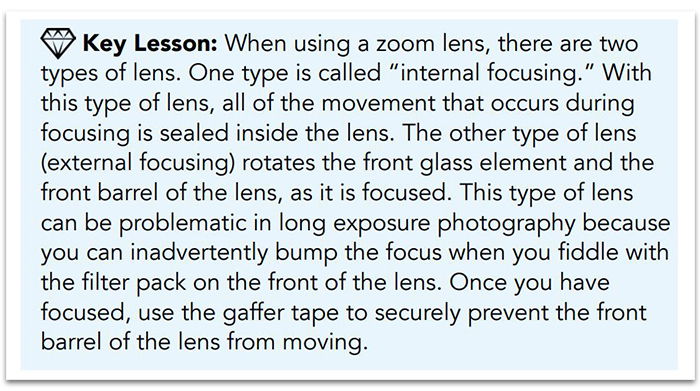
Why is it wrong? Internal focusing and zoom are two independent things. Non-internal focus doesn’t mean that the front is rotating.
Gaffer-taping the extended barrel is not a good idea. It can leave some glue behind, making focusing problematic, or even stuck in the extreme case.
Is There a Good Alternative?
I have recently reviewed ‘The Photography Tutorial eBook’ by Richard Schneider of PictureCorrect.
While it doesn’t concentrate on long exposures only, it’s definitely a viable alternative. It gives a broader perspective of various long exposure techniques, along with uncomparably better images and writing.
It’s slightly more expensive, but the difference is worth it multiple times. Check out the ebook and my review of it.
Conclusion
For the first time on our site, I have to completely advise against purchasing a product.
The ‘Long Exposure eBook’ is marketed as a complete, expert, exclusive, and premium guide.
In my opinion, it’s neither of those. It feels rushed, unfinished, and amateurish. It doesn’t deliver what it promises. Apart from some good technical advice, it only causes further confusion.
I very much missed the inclusion of nighttime and other types of long exposure techniques. Also, some of Photzy’s marketing efforts raise questions and might mislead their potential customers.
If you’re still interested, check out the ‘Long Exposure eBook’ here.
Scores
To standardise and compare our product reviews, we’ve decided to use a scored-based ranking system. To learn more about interpreting these numbers and how other courses measure, please visit our review roundup page here.
[scores price="no" product="31120″ tag="expertphotog-20″ toc="no" left_title="Measurement" right_title="Score"]
